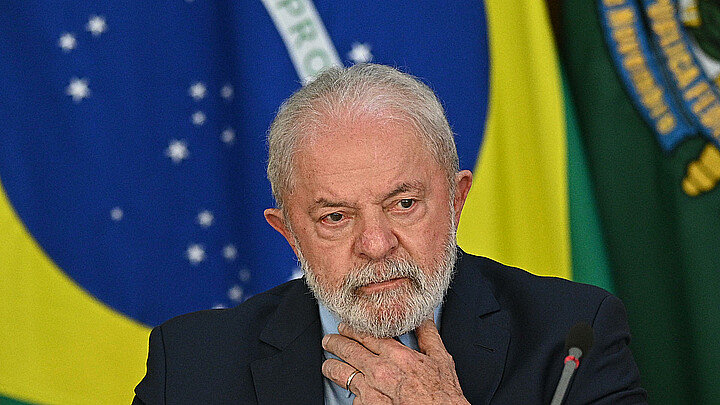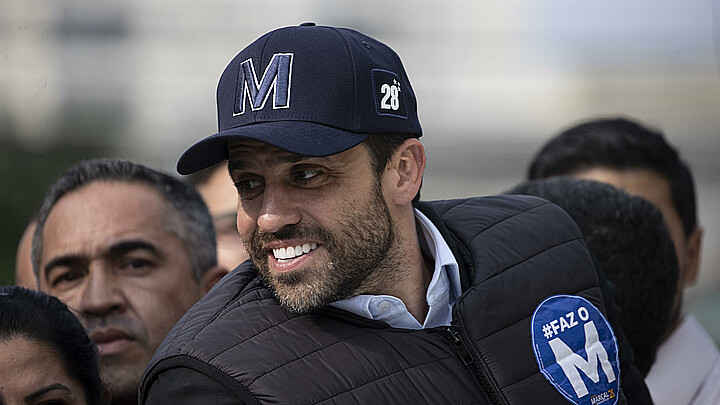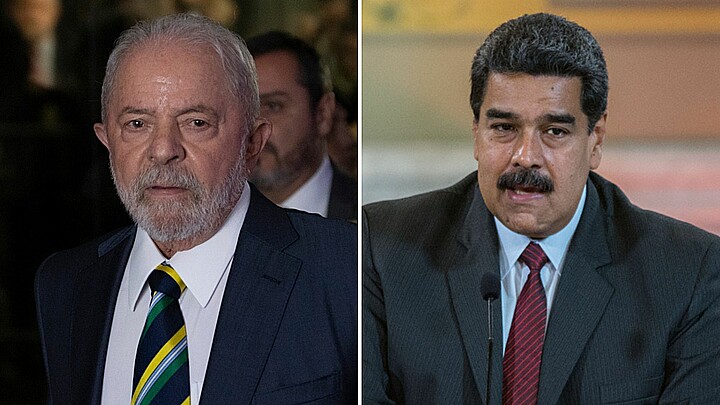Politics
Nicaragua expels Brazilian ambassador for not attending Sandinista Revolution anniversary celebrations
Diplomatic tension between the two Latin American countries escalated on Thursday

August 8, 2024 2:13pm
Updated: August 9, 2024 10:13am
The Brazilian government announced this Thursday it would expel Nicaraguan Ambassador Fulvia Castro in response to a similar move made by the Ortega regime after it expelled the Brazilian representative hours beforehand, according to official sources who spoke to the EFE Spanish language news agency.
The decision was announced after Daniel Ortega’s totalitarian regime formalized the expulsion of Brazilian Ambassador Breno Souza da Costa after the diplomat's did not appear at a series of July 19 events orchestrated to commemorate “the 45th anniversary of the Sandinista revolution.”
As a result, the Marxist Sandinista regime gave the Brazilian diplomat a period of 15 days to leave the Central American country.
According to the sources consulted by the media, Brazil has done nothing more than apply the "principle of reciprocity" against a measure that it has considered "unjustified."
The president of the South American giant, Luiz Inácio Lula da Silva, has had a close relationship with Ortega since 1980, however in recent months, communication has deteriorated, especially due to the “political persecution” that the dictatorship of Managua maintains on Catholics, reformed Sandinistas and other people of religious faith.
Lula raised concerns about the situation last month during a press conference with foreign correspondents in Brasilia, in which he revealed that Ortega has not answered the phone since Pope Francis asked him to advocate for a Catholic bishop detained in Nicaragua.
“I spoke with the pope and he asked me to speak with Ortega about a bishop who was imprisoned,” Lula said in reference to Rolando Álvarez, a bishop imprisoned for his opposition to the Nicaraguan regime.
“The specific thing is that Ortega did not answer the phone and did not want to talk to me. So, I never spoke to him again,” he added.
Lula regretted that this happened with “a guy who made a revolution like the one Ortega made to defeat (Anastasio) Somoza” and said that today he does not know “if that revolution was because he wanted power or because he wanted to improve the life of his people.”
The Brazilian president said he was in favor of “alternating power” in every country, because it is “the healthiest thing” for a democracy. According to Lula, “when a leader gets it into his head that he is essential or irreplaceable, that is when the spirit of the dictator begins to be born.”
#LOULTIMO LULA Y ORTEGA VUELVEN A TENER OTRO FUERTE CHOQUE. LA DICTADURA LANZA ULTIMATUM A EMBAJADOR DE BRASIL PARA QUE ABANDONE EL PAIS. LULA ASEGURA QUE ORTEGA YA NO LO LEVANTA NI EL TELEFONO. #BRASIL #NICARAGUA pic.twitter.com/pSXrW3phuu
— Arturo McFields Yescas (@ArturoMcfields) August 7, 2024
The expulsion of ambassadors occurs at a time when Lula is trying to mediate the conflicts unleashed in Venezuela after the electoral elections on July 28, where dictator Nicolás Maduro once again claimed victory amid international scrutiny and the demands of his people.
Nicaragua, on the other hand, was one of the first countries in Latin America to recognize the Chavista as president-elect, despite the fact that the electoral authorities that respond to the ruling party have not yet presented the vote tallies of a process that the opposition has denounced as fraudulent.
The first news of the diplomatic conflict escalated on Thursday between Brazil and Nicaragua was first reported by the Brazilian newspaper Folha De S.Paulo and the Nicaraguan Divergents news platform, which cited diplomatic sources from both their countries.










